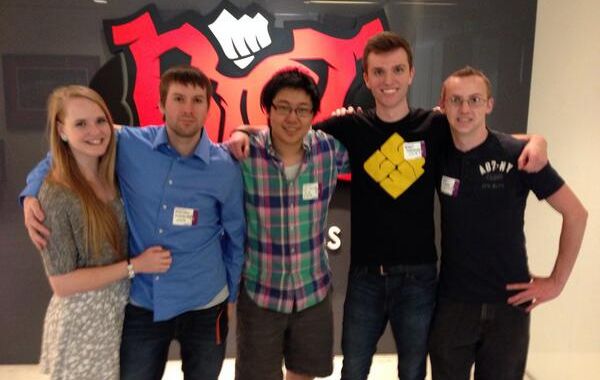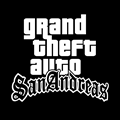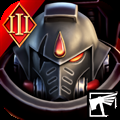Organization Insight: Rob "RobZGod" Thompson, President of vVv Gaming

Welcome to Organzation Insight, a new series where we talk to the managers, coaches, analysts and owners of competitive teams around the world to gain a new view on eSports.
Our first guest is Rob "RobZGod" Thompson, the President of vVv Gaming and an experienced memeber of the competitive League of Legends team.
Introduction
First of all, why don’t you introduce yourself and tell us what you do at vVv Gaming as well as your relationship with the League of Legends Challenger team.
I’m Rob Thompson, President of vVv Gaming. I’ve been in and around vVv since 2007 and handle the day-to-day operations from our teams, to website, community and staff. I was introduced to our Challenger team through one of our community members back in late October. The roster actually had already moved into a house together, so off the bat I knew they were pretty serious. After talking with the teams manager, and then eventually driving up to their house from Los Angeles, I negotiated the deal and initially allowed the team to operate fairly autonomously as they had a manager and analyst living with them in the house. So, early on - our relationship started as more of a sponsor, than a partner, which I learned throughout time was a shift in mindset myself and our staff would have to make for this team to be successful.
Describe your time in the vVv house alongside the LoL team(s) – what was your role in helping them prepare? How did you keep them motivated or focused on the task at hand?
I actually didn’t move into the house until about February. This was when we were making our run in the Spring Challenger Series. Cris, Tails and Snuggled were still in the house, along with Godshu, the former support player who was now teams Analyst. At this time, I transitioned into a more direct role with the team: managing their schedule, securing scrims, coordinating with Riot, etc. It made sense to move into the house so I could build stronger relationships with the players in person, work with the Analyst on a more focused routine and schedule. I would say my short time in the house was successful. During my two weeks there, the team had their best performance in the NACL going 3-1 in the week and also later advancing over LoLPro which would secure the team a slot on the Playoffs.
Currently vVv is inactive in the Challenger scene. Are you looking to pick up a new team or some other players?
We’re in discussions with one of our previous players who is potentially interested in rebuilding a roster. Outside of that opportunity, myself and our staff have a close eye on all the major Challenger tournaments going on and are currently conducting interviews with a few teams, both NA and EU. We learned a lot from our last team on how to screen, scout and vet talent. Any teams, players or managers interested in working with us, please feel free to reach out to me via e-mail: [email protected].
On vVv Gaming and the Challenger Experience
From the perspective of a manager and owner, what draws an organization to a Challenger team? How do you make an educated business decision on which up-and-coming players to back?
LCS is the ultimate goal, of course. With the broadcast time that Riot provides these teams and players, we received a healthy amount of visibility and brand equity in return for our investment. We established ourselves in the scene and rebuilt our credibility. For me personally, I learned a lot from my experiences with the team which I feel confident in applying to future talent acquisitions and management. At the end of the day, though, it’s always a risk investing in unproven talent. However, it’s also very rewarding and exciting to be a part of that process of working with them to develop individually and as a team.
In this same vein, what considerations need to be made when providing a Challenger team with a gaming house? What are the pros and cons?
The players have to want to be there, not just as a way to get away from their parents, avoid school, etc. That’s the most important thing. The idea of a “team house” sounds good to most Challenger players because they see that’s what LCS teams have. They sometimes make the mistake of thinking that if they just had the house, everything would be different, they would be able to train better and have an edge on other Challenger teams. In reality, players could benefit more from developing their training habits to their fullest in an online environment to prove to an organization/sponsor that a team house makes sense and would level up their performance. The pros and cons are very subjective, depending on the players. It takes the right group to make it work and to take full advantage of the opportunities that a team house brings, while also working through the struggles that it could potentially bring out.
More and more teams are using coaches and analysts – do you think this is now a necessary asset for any pro team to have in order to be successful in the current LoL scene? Are they mandatory for Challenger teams in order to reach the peak level? What does a good analyst or coach bring to the table that a live-in manager or owner such as yourself cannot?
I really think it depends on the group. If the team has someone on the team with a very analytical mind who loves doing picks and bans, scouting teams and can communicate his game knowledge to the rest of the team, an analyst might not be necessary as the player, culturally, will hold more credibility and influence. However, if we’re talking about optimization, I think they are a huge help once the team reaches a certain level and needs the help. I competed on console professionally for three years and can contribute in areas to help the team with their mentality, and other macro areas of their game such as pick-ban mind games that transfer over from any competitive sport. Whereas a solid Analyst can bring the game knowledge and communication skills to help the team realize their strengths and weaknesses and the same for their opponents. The analyst can also in some cases build a strong relationship with players because they understand League more than I do. They can help with mechanics, build orders and what champions focus on improving for the current meta or upcoming matchup. A good coach should also be a facilitator for the team’s disagreements, asking the right questions to bring the solutions out of the players, instead of just instructing them what to do, or how to play.
Before Riot instituted the Challenger Series, most non-LCS teams competed in Minor Online or Offline events in order to gain notoriety and make a play for LCS contention. How has the Challenger Series changed how pro-teams such as vVv approach the Challenger Scene?
On one hand, I miss the offline events such as MLG and IPL because those events help teams grow immensely, network and interact with new fans. On the other, I’ve found the current model much easier to scout new talent as the road to LCS is much more clear and consistent than the previous model. It gives us more data, more often to work with on how teams perform under pressure (bo1, single elim) and also encourages teams to stick together with the point system which ties into the Promotion Tournament directly.
vVv made in interesting move last split by deciding to divide your roster in two, essentially doubling your LCS potential – describe the management decisions that go into making big moves of this kind. Do you think it was to the benefit of the teams? Did having multiple teams divide the focus on your organization in any way?
Most moves like this in the Challenger Scene are actually done by the players, with organizations supporting their decisions - which is exactly what happened here. After failing to qualify in the Fall for the Spring Promotion Tournament, the team felt that splitting into two teams would benefit all parties involved, and we agreed. Looking back, it could have been much cleaner. Neither roster was really solidified, and it did take a lot of focus as both teams were finding their way. As an organization, we learned quite a bit from this process as well.
From a business standpoint, how does a pro-team like vVv maintain faith in a team that is struggling? What decisions go into keeping or disbanding a rosters which is lacking in success?
BelievVve! Haha, just kidding. But really. When we invest in players, we stick with them and work through the problems. Just as they commit to us, we also commit to them. At the end of the last split, it was the team that decided to no longer move forward into the Summer CS, which was understandable.
In the light of the recent events which have led to the release of Mithy and Nukeduck from NiP, and their competitive suspension due to toxic behavior, do you think NiP was correct in immediately reprimanding them? What must be taken into consideration as a business when dealing with players who violate codes of conduct?
I don’t know all of the details, but in my eyes toxic behavior is completely inexcusable. These pro-players influence millions of fans around the World and should be held to a higher standard. As an organization, it’s very important to communicate this early on to players so that expectations are set even outside of the Summoners Code. This type of event surely creates a difficult conversation between NiP and their sponsors, but they will make it work, I’m sure.
With no new entries into the EU LCS this split and many of the top tier Challenger teams disbanding in both EU and NA the wake of the Summer Relegation tournament, many people are speculating that there will be little to no change in either LCS for the foreseeable future – do you agree with this? Do you think that Challenger has reached its peak or are there still teams that can play at an LCS level?
I don’t have visibility into every team, but I believe LCS teams and players take their jobs much more seriously than most Challenger teams do. It’s just a different mentality. A Challenger Team that wants to make LCS really needs to buckle down and take every scrim and minute seriously for them to have a good shot. Knocking out an LCS team is going to harder and harder as the splits roll on, it’s almost an uphill battle for Challenger Talent. They really need to have the drive and work ethic to make it happen. Period.
What do you think about the current Challenger teams? Who looks strong and who has surprised you?
It’s really too early to tell. CS2 is where I expect to see some new talent and surprising upsets. I do look forward to seeing the new Curse Academy and Coast lineups. Also can’t count out LoLPro as they are one of the most consistent rosters in the Challenger Scene that I know of. They’re doing it right.
The Amateur Draft League
*ADL questions answered by vVv LoL Division Manager, Cameron McGrory*
vVv announced your latest project about a week ago, the Amateur Draft League. For those who aren’t familiar with this endeavor, why don’t you give a quick rundown of what it is and the goals vVv had in mind when creating this new opportunity for NA players?
The ADL is basically a glorified gym class for League of Legends players. I played over 4.5 thousand soloqueue games over the course of season 3 and felt like the experience could use much improvement. The Draft allows players to get involved in competitive 5v5 League of Legends independently of having a team. These nights are open to any and all summoners and have seen attendance from players of every single tier. Our goal was to allow players an environment to be seen, compete for prizes and receive feedback from higher level players. This allows for development of individual skills as well as teaches players how to comport themselves in a team environment in a respective and progressive manner.
How has the event been so far?
The event so far has received phenomenal feedback! We have had over 160 unique summoners from all tiers and divisions over the first 4 days of the launch. The players have really enjoyed the experience from top to bottom. The diamond players relish the opportunity to fine tune their shot calling abilities and battle for the MVPs, while the lower ranked players get the chance to receive high quality feedback from more advanced players.
What does this project bring to the community? How can the average player benefit from it?
This project provides the community with an opportunity to get involved in competitive League on a consistent basis. At the end of the day, Video games and League of Legends in particular, are meant to be a social experience. A lot of this purpose is lost in the toxicity and raging that can occur in Solo Queue and you don't actually get to form an relationships. The ADLs let's the average player just show up and compete within an organized, respectful environment. This grants them that rewarding social experience people seek out when playing video games, while also allowing players to fuel their competitive desire and improve their individual skill through feedback and high quality practice.
Thanks for the interview! Any finals shout-outs?
Thank you for the interview and shoutout to all of the players, Riot Staff and managers who we had the pleasure of working with so far in the Challenger Scene! And to our sponsors SteelSeries, DXRacer, BenQ and AVerMedia.













